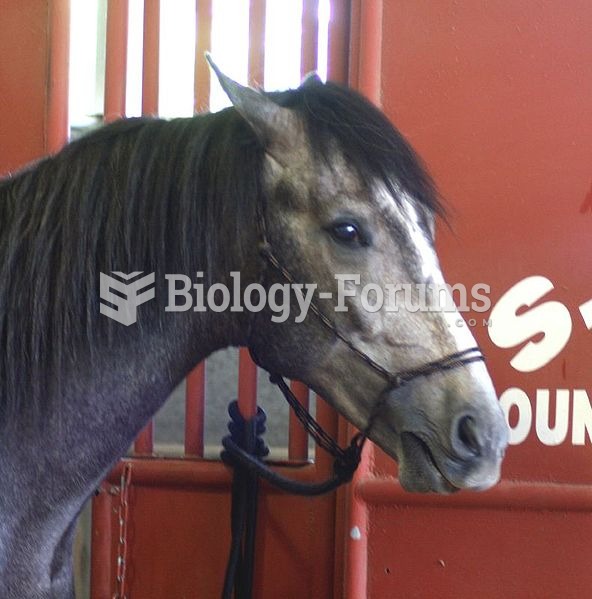|
|
|
There are 60,000 miles of blood vessels in every adult human.
Patients who have been on total parenteral nutrition for more than a few days may need to have foods gradually reintroduced to give the digestive tract time to start working again.
The familiar sounds of your heart are made by the heart's valves as they open and close.
The first documented use of surgical anesthesia in the United States was in Connecticut in 1844.
Looking at the sun may not only cause headache and distort your vision temporarily, but it can also cause permanent eye damage. Any exposure to sunlight adds to the cumulative effects of ultraviolet (UV) radiation on your eyes. UV exposure has been linked to eye disorders such as macular degeneration, solar retinitis, and corneal dystrophies.
 Tense laid back ear position indicating unhappiness. Mouth and lips are also tense, which may indica
Tense laid back ear position indicating unhappiness. Mouth and lips are also tense, which may indica
 Neopetalia punctata is a dragonfly, the only member of the family Neopetaliidae. It is endemic to Ar
Neopetalia punctata is a dragonfly, the only member of the family Neopetaliidae. It is endemic to Ar





